
Advertising on hand sanitizer stations. This unconventional but highly effective method leverages the strategic placement of ads on sanitizing kiosks in high-traffic locations such as pharmacies, grocery stores, and medical centers.
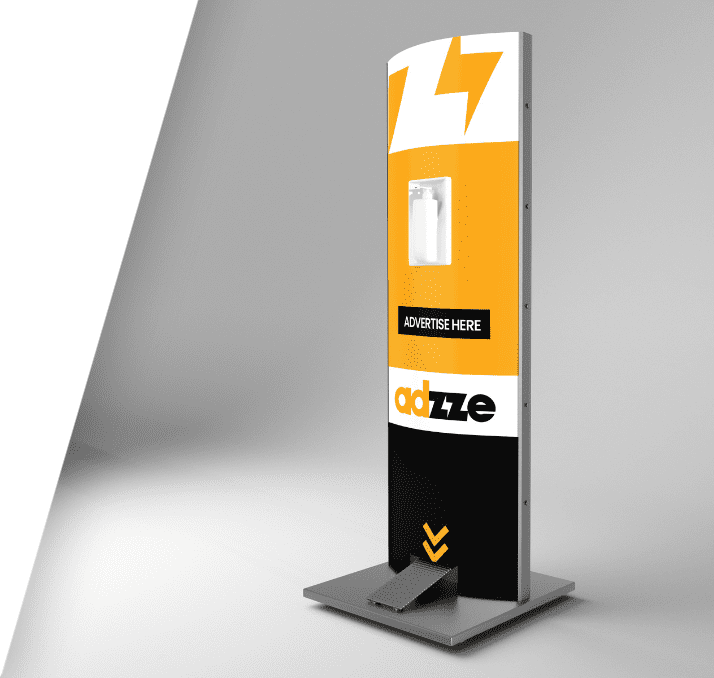
Hand sanitizer advertising utilizes the strategic placement of sanitizing stations in high-traffic areas like malls, airports, and hospitals. These stations include ad spaces that capture attention as users sanitize their hands. The process is seamless, leveraging a habitual activity to ensure visibility and engagement with ads.
Impacts of Hand Sanitizer Advertising
Positioned in high-dwell locations like checkout counters or entrances, these stations deliver ads in a context associated with health and safety. This creates positive brand associations and ensures the message is hard to ignore.
Hand sanitizer advertising connects with health-conscious audiences, promoting retail products, gym memberships, e-commerce apps, and healthcare campaigns. With QR codes, dynamic content, and interactive designs, it engages consumers and leaves a lasting impact.
Static ads on hand sanitizing stations provide a consistent and straightforward way to deliver your brand message. These non-digital displays are highly visible and perfect for simple, impactful communication that remains in place for an extended period.
Specifics:
Best For:
Brands seeking long-term visibility, such as healthcare providers promoting flu shot awareness, gyms advertising membership deals, or financial services showcasing localized offers.
Hand sanitizer stations can be branded with custom wraps, featuring logos, slogans, or eye-catching designs that resonate with the target audience. This approach allows businesses to align the advertising with their branding and campaign goals.
Specifics:
Best For: Brands aiming for long-term brand visibility, such as financial services promoting awareness campaigns or retail brands showcasing seasonal offers.
The effectiveness of hand sanitizer advertising depends heavily on where the stations are located. By placing stations in high-traffic areas, brands ensure maximum visibility and engagement. Placement examples:
Hospitals and Clinics: Ideal for healthcare providers sharing public awareness campaigns.
Gyms and Fitness Centers: Effective for promoting fitness products, memberships, or health apps.
Retail Stores: Excellent for advertising discounts or product launches.
Airports and Transit Hubs: Perfect for financial services promoting travel-related offers.
Colleges and Universities: Suitable for e-commerce brands targeting young, tech-savvy audiences.
Best For: Businesses aiming to reach a health-conscious audience in targeted locations.

Sanitizer station ads combine high visibility, brand association, engagement, and versatility to deliver impactful campaigns.
High Visibility: Placed in strategic, high-traffic areas like store entrances, pharmacies, and malls, these stations ensure your ad is seen by a large audience during moments of focus. Their presence in waiting or checkout areas capitalizes on long dwell times, making your message hard to miss.
Positive Brand Association: Ads on sanitizer stations align your brand with health, hygiene, and safety. This creates a strong, positive impression, especially for healthcare, wellness, and pharmaceutical brands, or any business wanting to connect with responsible consumer behavior.
Enhanced Engagement: Unlike static billboards, sanitizing stations require physical interaction, ensuring users stop and notice your ad. This natural engagement makes it more likely your message will resonate in today’s fast-paced media environment.
To fully capitalize on the benefits of sanitizing station advertising, tracking and measuring your campaign’s success is essential. Here are a few ways to do this:
These are just a few examples of how hand sanitizer advertising can be leveraged across different industries to achieve impactful results.
Healthcare Awareness Campaign: A healthcare provider used hand sanitizer stations to promote free wellness checkups. Ads displayed on the stations featured QR codes that directed users to book appointments or access health tips. This campaign increased engagement and led to a noticeable rise in appointment bookings.
Financial Services Promotion: A financial institution leveraged hand sanitizer stations to advertise low-interest personal loans. Branded digital screens featured QR codes linking directly to online loan applications, driving increased inquiries and conversions among consumers.
E-Commerce Engagement Campaign: An online retailer advertised exclusive first-time buyer discounts using hand sanitizer station ads. Customers scanned QR codes displayed on the stations to browse products and redeem discounts, resulting in a significant uptick in new customer acquisitions.
Healthcare Product Promotion: A pharmaceutical company promoted a new over-the-counter product by featuring ads on hand sanitizer stations. QR codes on the stations offered instant discount coupons, boosting sales and raising product awareness among health-conscious consumers.
Financial Education Campaign: A credit counseling service advertised free financial literacy workshops through hand sanitizer stations in high-traffic areas. QR codes directed users to registration forms, significantly increasing workshop attendance and expanding outreach.
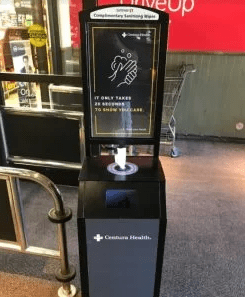
Centura Health Uses Hand Sanitizing Stations to Promote COVID-19 Vaccination

How New York State Enticed City Dwellers to Belleayre Mountain with a Door Hangers Campaign

Champlain College Delivers Career Growth with Pizza Box Toppers

How Washington State Used Bar Coasters to Reopen Safely Amid COVID

Kashi’s Bear Naked Granola Takes Over Coffee Shops with Coffee Sleeves




The CPM (cost per thousand impressions) for sanitizing station advertising typically ranges from $3 to $8. This cost depends on factors like the venue, the type of ad (digital or static), and the duration of the campaign.
Many digital sanitizing stations come equipped with tracking technology that measures the number of people who interact with or pass by the ads. Advertisers can also use tools like QR codes or promo codes to track engagement and ensure distribution in the intended locations.
While the exact response rate is not detailed in the text, the strategic placement of sanitizing stations in high-traffic areas like entrances, exits, and checkout counters ensures high visibility and engagement. This format benefits from capturing attention during moments of focus, increasing the likelihood of a positive response.
The text does not explicitly mention the ability to customize the physical design of the stations themselves, but digital ads on these stations are highly customizable. They allow for dynamic content, such as video, animations, or rotating messages, enabling tailored campaigns based on seasonal promotions or specific brand goals.
Yes, sanitizing station advertising is effective for digital businesses. The use of QR codes, custom URLs, or promo codes in ads helps drive online traffic and measure digital engagement. This form of advertising connects offline exposure with online actions, making it ideal for businesses seeking digital conversions.
Sanitizing station advertising offers a unique blend of hyper-local targeting, high visibility, and cost-effectiveness, making it an underrated tool for advertisers looking to reach specific audiences. Ready to explore how this method can drive results for your brand? Request our Media Kit today to explore the possibilities further.
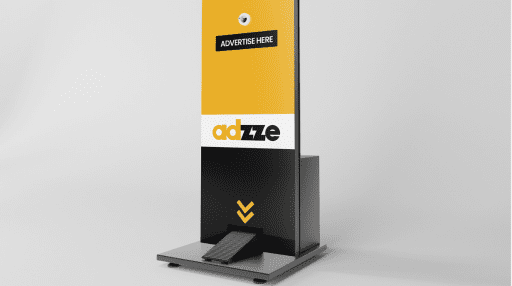

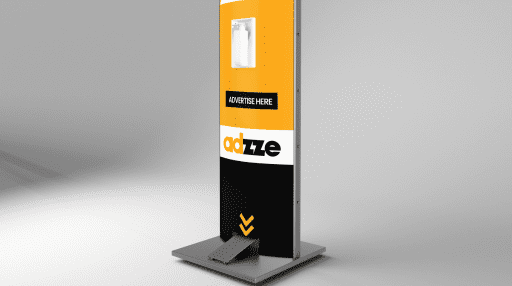
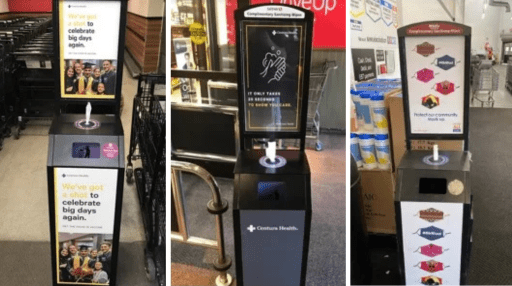
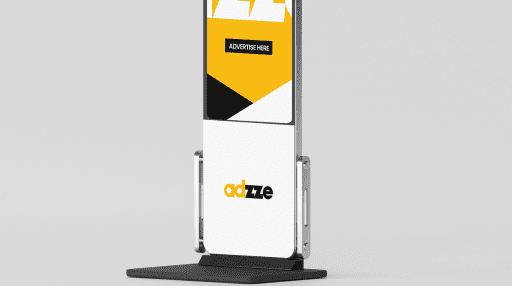
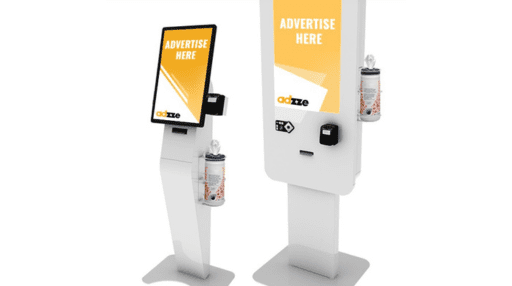

All rights reserved 2024